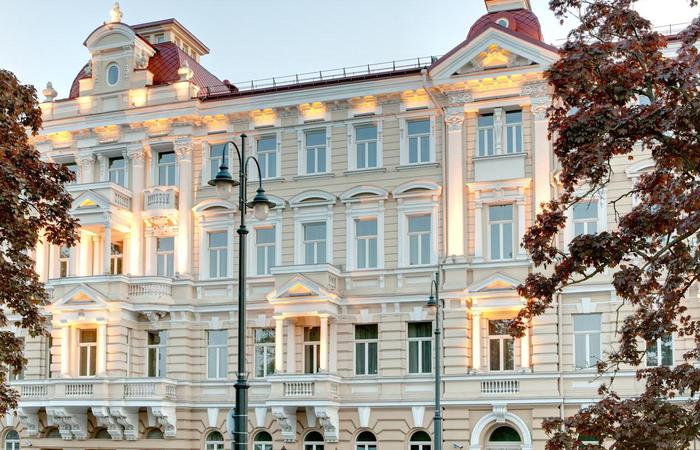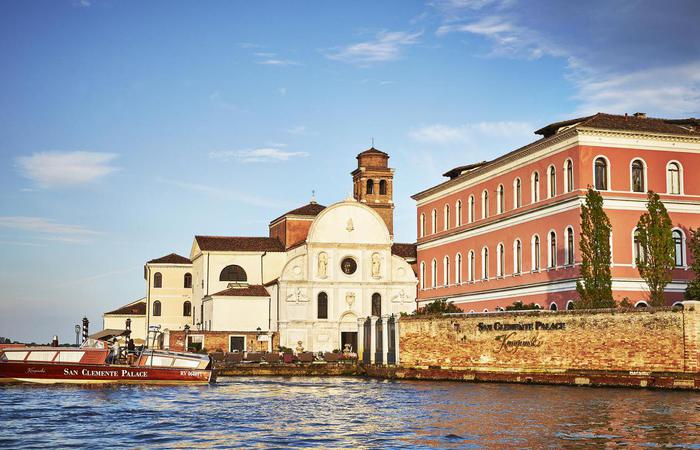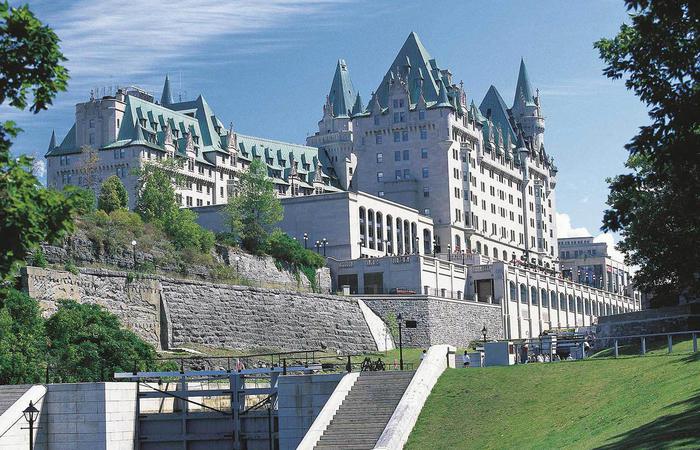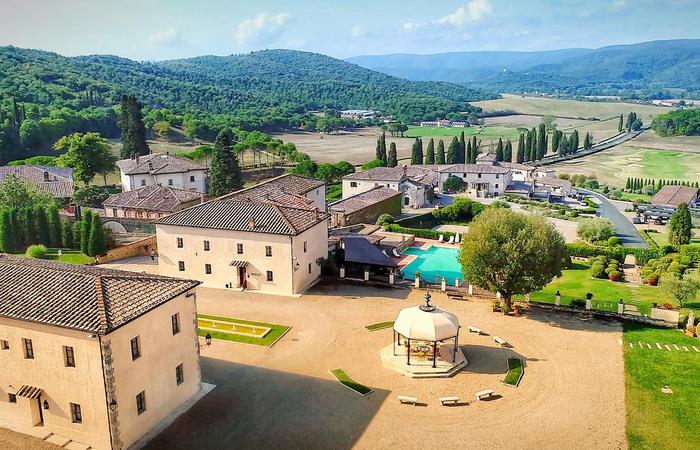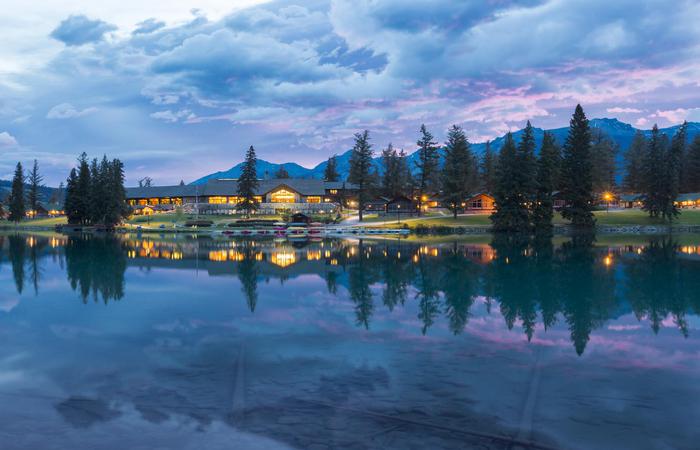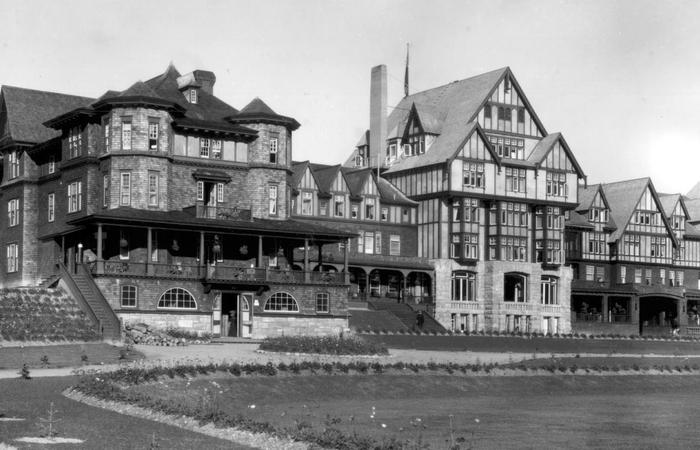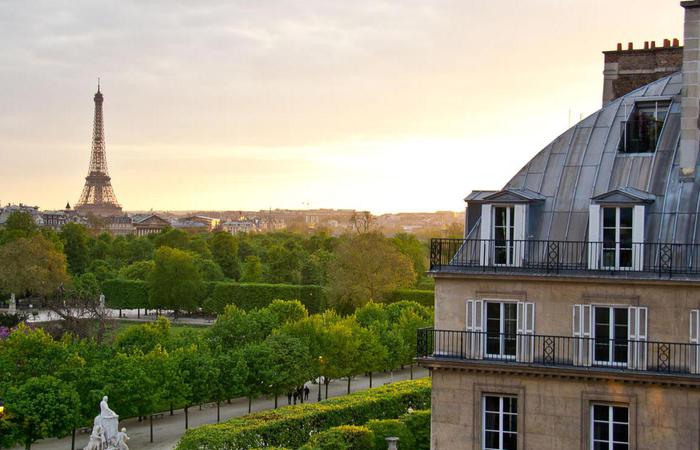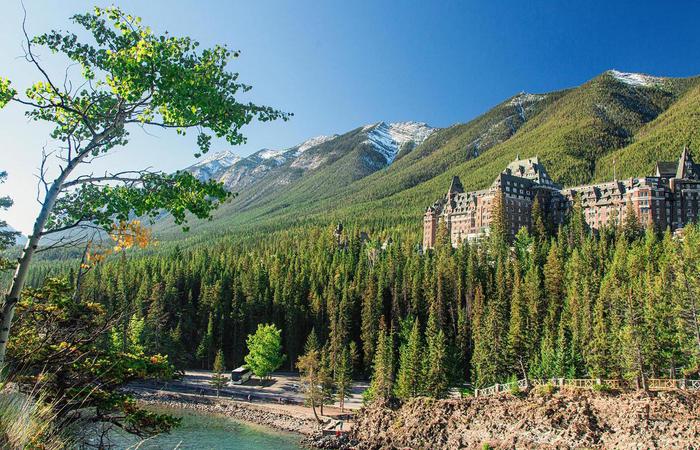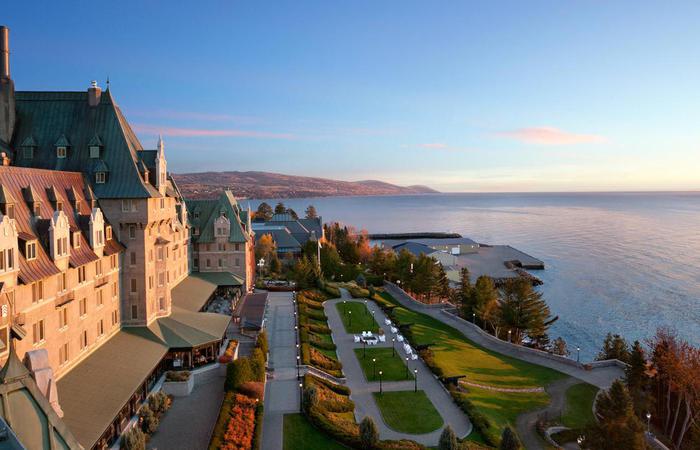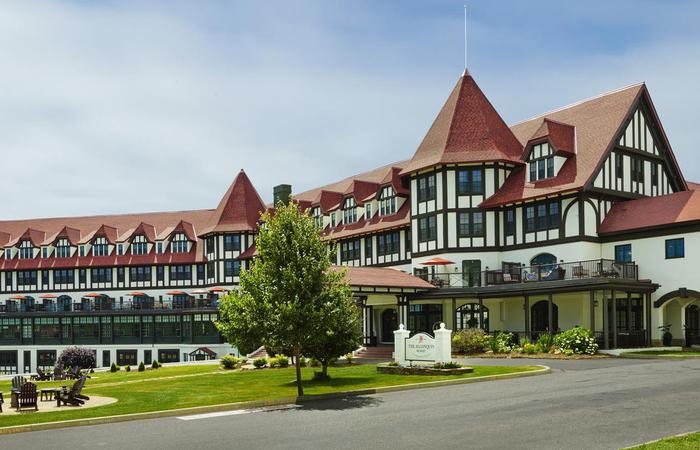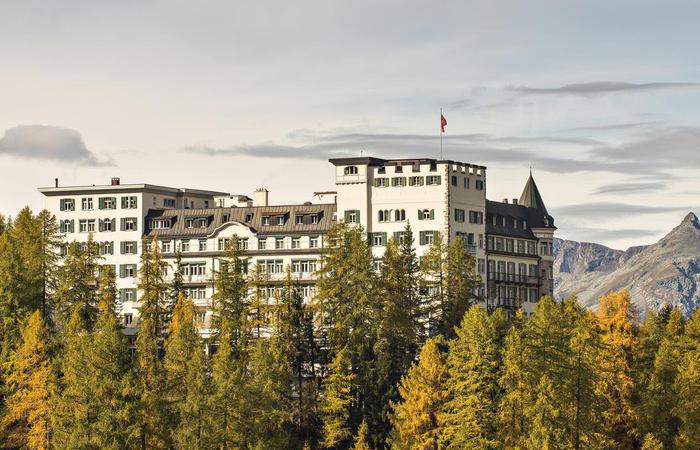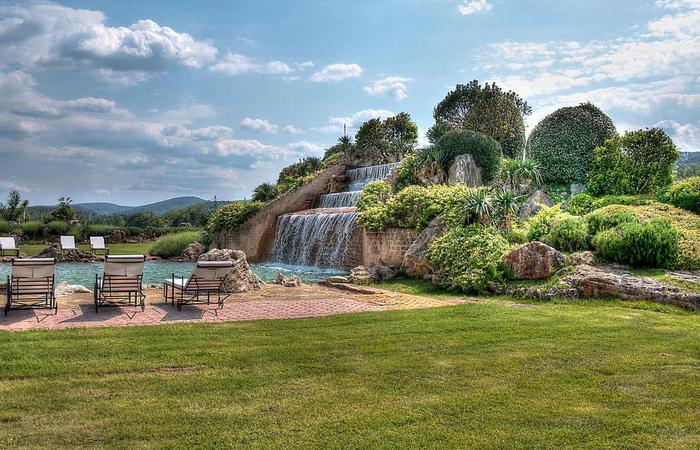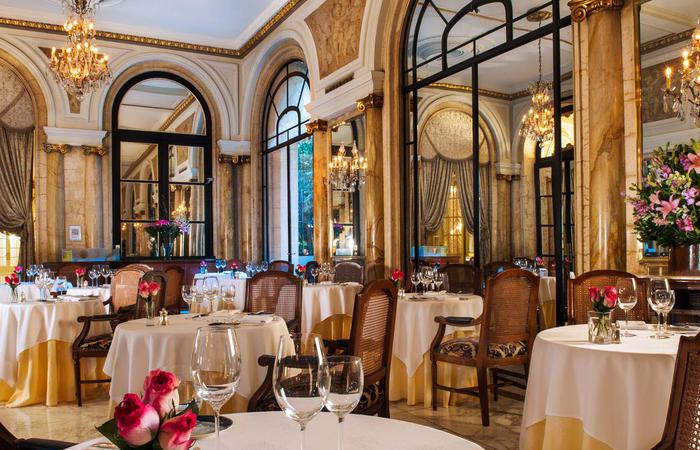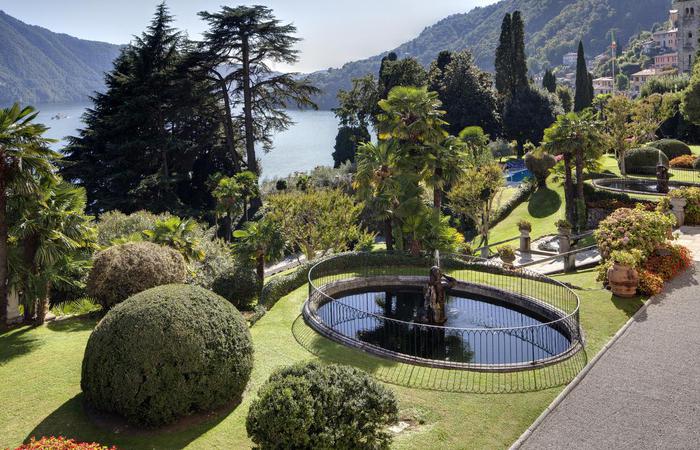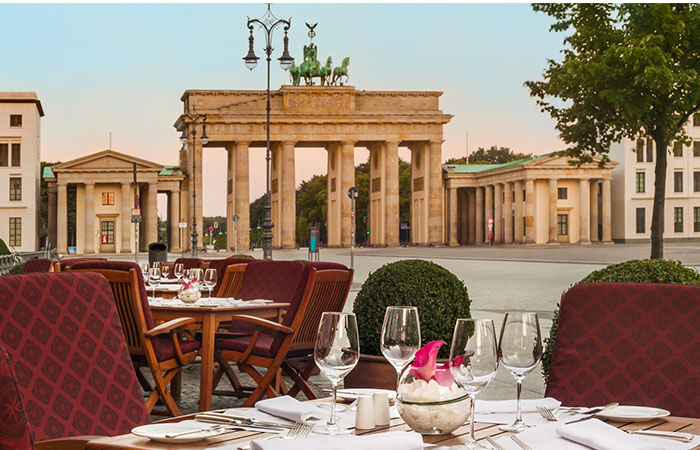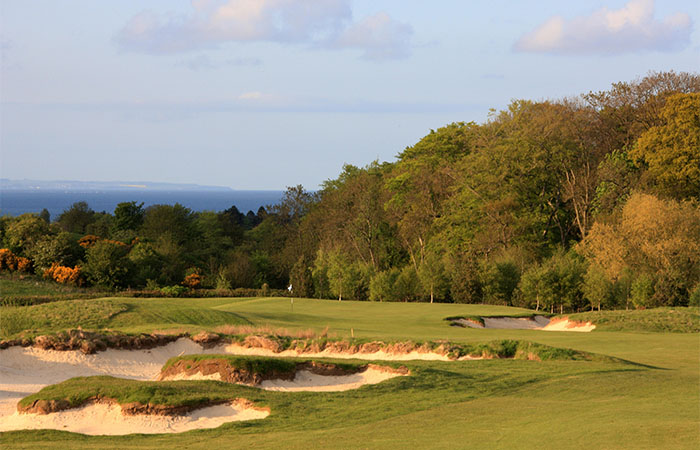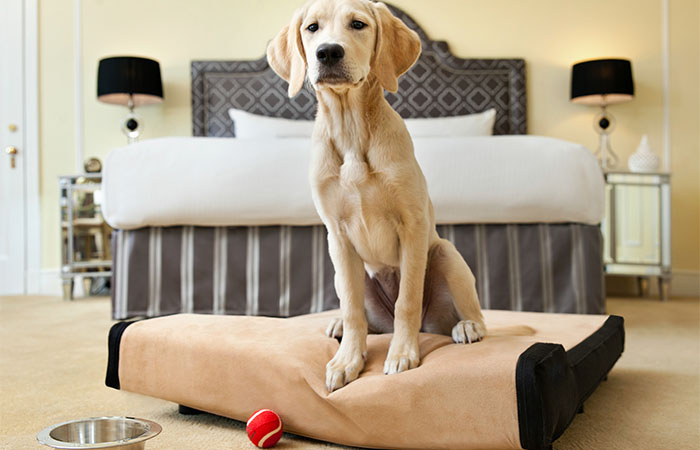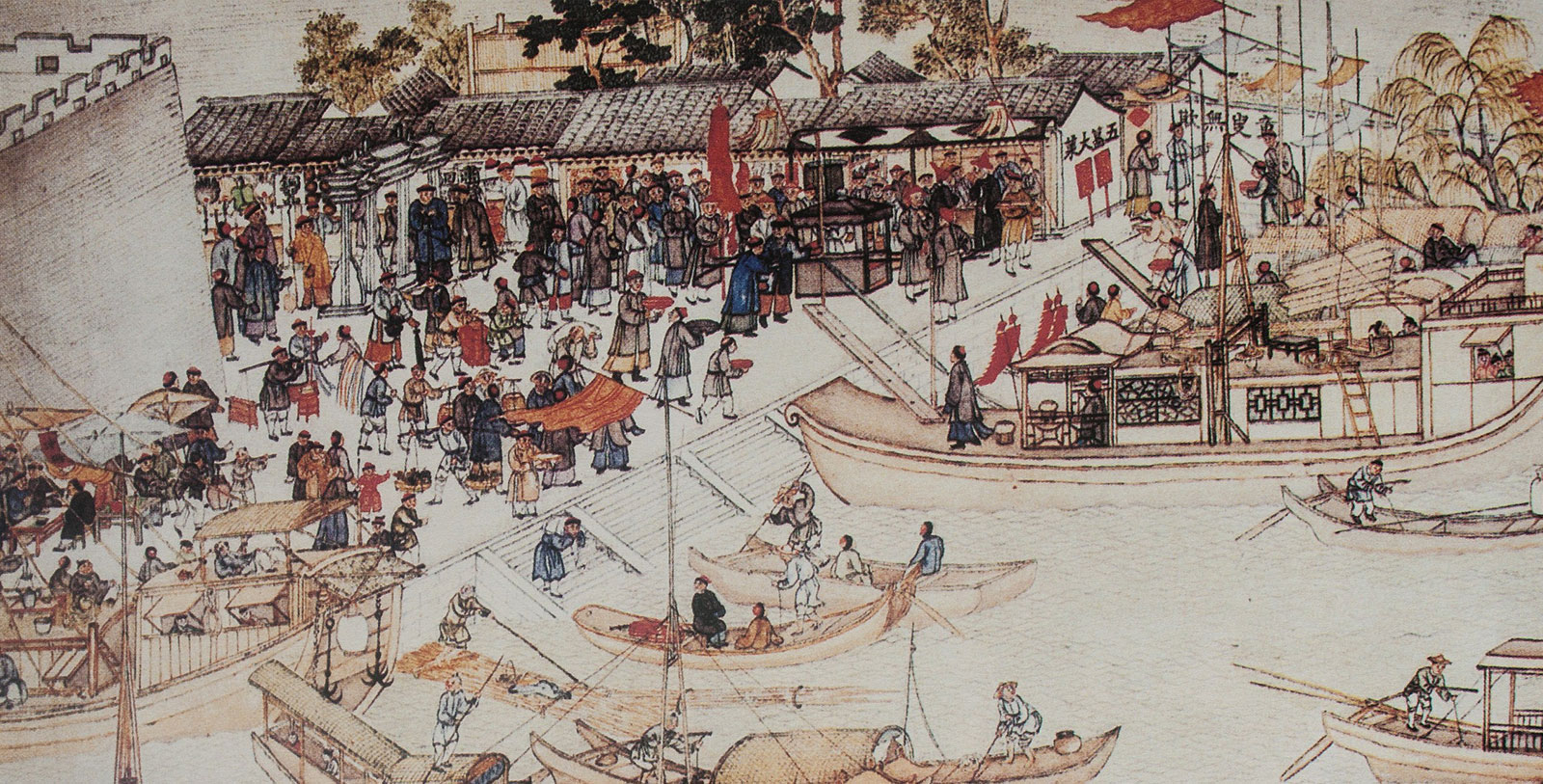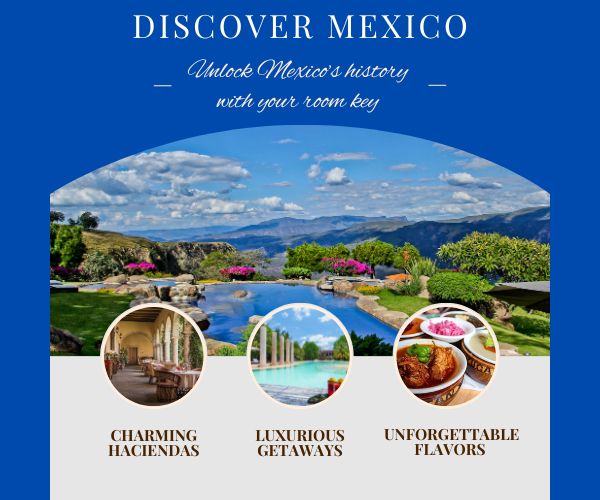Receive for Free - Discover & Explore eNewsletter monthly with advance notice of special offers, packages, and insider savings from 10% - 30% off Best Available Rates at selected hotels.
history
Discover Garden Hotel Suzhou, which is surrounded by a renowned UNESCO World Heritage Site known as the “Classical Gardens of Suzhou.”
Garden Hotel Suzhou, a member of Historic Hotels Worldwide since 2022, dates back to the 1930s.
VIEW TIMELINELocated mere minutes away from the renowned Master of the Nets Garden (part of a UNESCO World Heritage Site), the Garden Hotel Suzhou has a fascinating institutional history. It’s main building was originally developed during the early 1930s as the personal residence for Chiang Kai-shek’s second wife, Yao Yecheng. Over time, the manor became synonymous with the Chiang family, especially after his adoptive son, Chiang Wei-kou, moved into the facility. (Also in the compound at the time was the villa of He Ya'nong, whose second daughter and son-in-law were the famous scientists He Zehui and Qian Sanqiang.) But others in Suzhou marveled at the building’s beautiful architecture, which had been built into a greater historical garden complex that harkened back centuries. Nevertheless, the structure’s affiliation to Chiang Kai-shek and his family ended in the late 1940s. The Communist government completely transformed the erstwhile residence into an official state-run guesthouse in 1952.
Called the “Garden Hotel Suzhou,” it quickly emerged as a popular gathering spot for prominent members of the Chinese Communist Party. Indeed, Chairman Liu Shaoqi was a frequent guest who formed many connections with the hotel’s staff throughout the 1950s. In 1971, Vice Chairman Ye Jianying held a massive banquet at the Garden Hotel Suzhou in honor of Cambodian Prime Minister Norodom Sihanouk. Den Xiaoping was even a guest in 1983, where he gave a special speech about his future hopes for modern China. (Other high-ranking Chinese politicians to visit have included Zou Enlai, Yang Shangkun, and Chen Yun.) Other international leaders have stayed at the Garden Hotel Suzhou on their own as well, such as Japanese Prime Minister Toshiki Kaifu, British Prime Minister Margaret Thatcher, and American President Jimmy Carter. The Garden Hotel Suzhou has since remained one of the region’s most luxurious hotels, offering refinement and elegance to its many contemporary travelers. For a classic Suzhou experience, this tranquil retreat is truly a class apart.
-
About the Location +
In 514 B.C., General Wu Zixu constructed a settlement along the shore of Lake Taihu at the behest of his king, Helü of Wu. Named it after the king himself, the community quickly emerged as an important economic center in the greater Yangtze Delta. While merchants conducted all kinds of businesses within Helü, trade in rice and silk was the most prosperous. The size of Helü grew as such, gradually absorbing the surrounding marshland into its borders. The unique topography created many profoundly distinctive neighborhoods that were separated by creeks and streambeds. Over time, those waterways morphed into an interlocking network of gorgeous canals. Helü had evolved into a mighty city in just a matter of decades, solidifying its position as the main seat of power for the ruling Wu monarchs throughout much of China’s Spring and Autumn period. But another kingdom known as Yue eventually conquered the Wu, marking an end to the city’s first era of socioeconomic success. After years of war, the settlement was subsequently incorporated into the greater realm of the Qin Dynasty. The city itself functioned as the regional capital for the province of Wu, which constituted much of the former Kingdom of Wu’s lands. A new era of prosperity then affected the city that lasted for generations, even as successive dynasties of Chinese rulers assumed the imperial throne. Now known colloquially as “Suzhou,” the city’s affluence increased dramatically with the arrival of the historic Grand Canal during the 7th century A.D. Regarded as one of the greatest public works ever constructed, the river connected Suzhou to market towns once considered too far to ever reach. Considerable quantities of wealth continuous entered into the city for centuries thereafter, despite periodic moments of conflict with foreign armies like the Mongols.
The height of Suzhou’s prestige transpired during the reign of both the Ming and Qing Dynasties. Maritime commerce entered into the city unlike ever before, enlarging the affluence of its social elite. They subsequently built hundreds of new buildings that ranged from palatial estate to grandiose commercial facilities. But the most magnificent structures to appear in Suzhou at the time were ornate outdoor gardens, which lined the sides of the city’s numerous waterways. Around 200 beautifully manicured gardens had debuted by the end of the 18th century, giving Suzhou a lush appearance that few other metropolises in the world then possessed. Indeed, the gardens helped cultivate the city’s international reputation as the “Venice of the East.” (Famed Italian explorer Maroc Polo originally coined the term upon witnessing Suzhou’s canals during the Middle Ages.) Unfortunately, the city entered a prolonged period of decline in the 19th and early 20th centuries, when armed struggles like the Taiping Rebellion and the Second Sino-Japanese War caused great devastation. But in the following years, Suzhou managed to reemerge once more as a vibrant community. Largescale manufacturing and finance became the domain economic activity, although traditional industries—like sericulture—endured, too. Chinese officials also committed to saving Suzhou’s remaining historic sites, particularly its resplendent garden complexes. The work proved to be so successful that the Chinese government identified Suzhou as one of just four cities in China to have major historical significance. Today, Suzhou remains one of China’s most fascinating destinations. In fact, a number of Suzhou’s restored gardens—including the nearby Humble Administrator's Garden and the Lingering Garden—are currently designated as part of a sprawling UNESCO World Heritage Site called the “Classical Gardens of Suzhou.”
-
About the Architecture +
"Just as there is paradise in heaven, there are Suzhou and Hangzhou on earth." Suzhou, a city of canals just south of the Yangtze River, has been a pearl of the affluent Yangtze River Delta since antiquity. Known as the “Venice of the East,” Suzhou is not only one of China's most historic cities, but also one of its most dynamic. Jiangsu Guotai Garden Hotel Suzhou (South Garden) is a highlight of Suzhou's past, present, and future. South Garden was already well known in Suzhou more than a thousand years ago. Su Shunqin, a famous poet, once wrote: "When Xishi (an ancient beauty) visited the famous garden, hundreds of thousands of flowers specially came into blossom.” In modern times, South Garden became the former residence of Jiang Jieshi's (Chiang Kai-shek's) second wife, Yao Yecheng and their son, Jiang Weiguo. One of the earliest scientists of “New China,” He Zehui and her husband, Qian Sanqiang—remembered as "Father of Atoms in China"—also once made their homes in South Garden. As such, it is said that South Garden, like Suzhou, is "an inspiring place abundant in natural resources and producing outstanding people.”
Ming Xuan (Garden):
Also called "the pocket edition of Master of Nets Garden,” this “garden within a garden” is characterized by its waterside private dining pavilion. This fantastic facility is richly ornamented with antiques and offers top-class service. The Wu District Amorous Night banquets held here enjoy a wide reputation in Suzhou. Drinking wine and eating simple fishermen's dishes and Suzhou snacks in the moonlight, guests cannot help appreciating the artistic conception:
"Holding a cup of wine, I ask the blue sky
And hear music from the opposite shore;
Dancing with my moon-lit shadow,
It does not seem like Garden Hotel."
Memorial Site of "571 (Insurgency)" Project:
In the 1960s and 1970s, Lin Biao stayed at the Garden Hotel Suzhou and fancied making South Garden his "residence.” In 1971, Lin Biao, his wife, Ye Qun, and their son, Lin Liguo, arrived escorted by guards of the 8341 Army. It is at this time that "Summary of Minutes for 571 (Insurgency) Project" was said to have been secretly planned. The historic site is well preserved and open to guests.
Shanqing Buddha Hall:
Built in the eighth year of Emperor Tongzhi of the Qing Dynasty (1869), the Shanqing Buddha Hall was incorporated into the Garden Hotel Suzhou complex in 1958, and its derelict remains were dismantled in 1995. In 2005, during the expansion of the hotel, Guotai South Garden invested in the rebuilding of Shanqing Buddha Hall according to historical photos. The completion ceremony was held on July 24 of the same year. The rebuilding of the hall not only provides a tourism attraction of historical value for both foreign and domestic tourists, but also contributes to preserving the cultural relics of Wu District. This measure shows that the hotel management is firmly committed to the historical and cultural preservation of South Garden.
-
Famous Historic Guests +
Den Xiaoping, politician considered by many to be the “Architect of Modern China.”
Yang Shangkun, politician considered by many to be one of the founders of modern China.
Chen Yun, politician considered by many to be one of the founders of modern China.
Hu Yaobang, General Secretary of the Chinese Communist Party (1982 – 1987)
Zhao Ziyang, General Secretary of the Chinese Communist Party (1987 – 1989)
Jiang Zemin, General Secretary of the Chinese Communist Party (1989 – 2002)
Hu Jintao, General Secretary of the Chinese Communist Party (2002 – 2012)
Zhou Enlai, Premier of the People’s Republic of China (1949 – 1976)
Li Peng, Premier of the People’s Republic of China (1988 – 1998)
Zhu Rongji, Premier of the People’s Republic of China (1998 – 2003)
Yao Yilin, Vice Premier of the People’s Republic of China (1979 – 1988)
Li Lanqing, Vice Premier of the People’s Republic of China (1998 – 2003)
Liu Shaoqi, Chairman of the People’s Republic of China (1959 – 1968)
Hua Goufeng, Chairman of the People’s Republic of China (1976 – 1981)
Wan Li, Chairman of the Standing Committee of the National People’s Congress (1988 – 1993)
Qiao Shi, Chairman of the Standing Committee of the National People’s Congress (1993 – 1998)
Li Ruihuan, Chairman of the National Committee of the CPPCC (1989 – 2002)
Song Ping, Standing Committee of the Central Political Bureau of the Communist Party of China (1989 – 1992)
Zhu De, founding general of the People’s Liberation Army.
Ye Jianying, founding general of the People’s Liberation Army.
Baudouin I, King of the Belgians (1951 – 1993)
Fabiola de Mora y Aragón, Queen consort of the Belgians (1960 – 1993)
King Norodom Sihanouk of Cambodia (1941 – 1955; 1993 – 2004)
Margaret Thatcher, Prime Minister of the United Kingdom (1975 – 1990)
Toshiki Kaifu, Prime Minister of Japan (1989 – 1991)
Lee Kuan Yew, Prime Minster of Singapore (1969 – 1990)
Ong Teng Cheong, President of Singapore (1993 – 1999)
Jimmy Carter, 39th President of the United States (1977 – 1981)
-
Film, TV and Media Connections +
Thunder and Rain (filmed at the Lixi House, also known as “Building No. 7” today)

